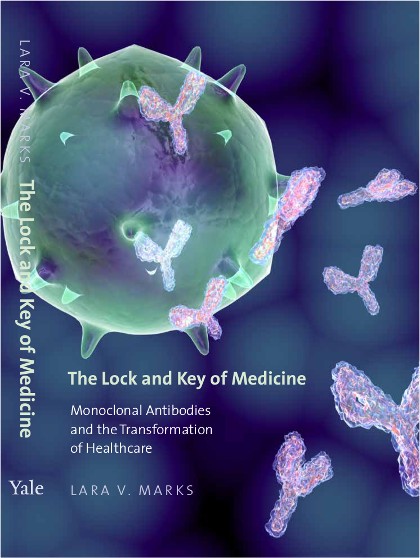Biotechnology stands at the forefront of scientific innovation, offering solutions to some of humanity’s most pressing challenges. But What Is Biotechnology exactly? At its core, biotechnology harnesses biological systems, living organisms, or parts of organisms to develop or create products. This encompasses a vast and interdisciplinary field, ranging from the medicines that save lives to the sustainable agricultural practices that feed the world. It’s a science that is deeply rooted in history yet constantly evolving, promising to reshape our future in profound ways.
Delving Deeper: Defining Biotechnology
To truly understand what is biotechnology, we need to look beyond a simple definition. Biotechnology is not just one discipline, but a convergence of many, including biology, chemistry, genetics, medicine, and engineering. It’s the application of scientific and engineering principles to living organisms and their molecular components to produce valuable products and technologies.
Historically, humans have unknowingly practiced biotechnology for millennia. Early forms of biotechnology date back to the dawn of civilization with the domestication of plants and animals for agriculture and the use of microorganisms in fermentation processes to produce bread, cheese, and alcoholic beverages. These traditional practices laid the groundwork for the sophisticated field we know today.
Modern biotechnology, however, emerged with the advancements in our understanding of biology at the molecular level. The discovery of DNA structure in the mid-20th century marked a turning point, ushering in the era of genetic engineering and recombinant DNA technology. This revolution enabled scientists to manipulate genes, the fundamental units of heredity, with unprecedented precision. This capability is central to what biotechnology is now capable of achieving.
The Broad Spectrum of Biotechnology Applications
The impact of biotechnology is far-reaching, touching almost every aspect of modern life. Understanding what is biotechnology in practice means exploring its diverse applications across various sectors:
Biotechnology in Healthcare: Revolutionizing Medicine
Perhaps the most widely recognized application of biotechnology is in healthcare, often referred to as medical biotechnology or biopharmaceuticals. This field has revolutionized how we prevent, diagnose, and treat diseases.
-
Pharmaceutical Drug Development: Biotechnology is the driving force behind the development of many life-saving drugs. Monoclonal antibodies, for example, are a class of biopharmaceuticals that have transformed the treatment of cancers, autoimmune diseases, and infectious diseases. The story of monoclonal antibodies, pioneered by César Milstein and Georges Köhler, highlights a pivotal moment in biotechnology, providing a way to produce standardized antibodies in limitless quantities, impacting diagnostics and therapeutics immensely.
-
Vaccine Development: Vaccines are a cornerstone of public health, and biotechnology plays a critical role in their development and production. The Hepatitis B vaccine is a prime example of a biotechnological triumph. It was the first vaccine to prevent cancer and the first to be created using just a viral subunit, significantly enhancing vaccine safety. The rapid development of COVID-19 vaccines also showcased the power of modern biotechnology, relying on mRNA and viral vector technologies to combat a global pandemic at an unprecedented speed.
-
Diagnostics: Biotechnology provides powerful diagnostic tools for early and accurate disease detection. Immunoassays, which utilize the specific binding between antibodies and antigens, are ubiquitous in clinics and research labs. They are essential for detecting and quantifying substances in biological samples, aiding in disease diagnosis, drug development, food safety testing, and environmental monitoring.
-
Gene Therapy and Genetic Engineering: Biotechnology offers the potential to treat diseases at their genetic roots. Gene therapy aims to correct genetic defects by introducing therapeutic genes into patients’ cells. CRISPR-Cas9 technology, a revolutionary gene-editing tool, has further expanded the possibilities of genetic engineering in medicine, agriculture, and beyond, although it also raises ethical considerations.
Biotechnology in Agriculture: Enhancing Food Security and Sustainability
Agricultural biotechnology is focused on improving crop yields, enhancing nutritional content, and developing sustainable farming practices.
- Genetically Modified (GM) Crops: GM crops are engineered to possess desirable traits such as pest resistance, herbicide tolerance, and increased nutrient content. These advancements contribute to food security and reduce the need for harmful pesticides.
- Improved Livestock: Biotechnology is also used to enhance livestock health and productivity, leading to more efficient and sustainable animal agriculture.
- Biopesticides and Biofertilizers: Biotechnology offers eco-friendly alternatives to chemical pesticides and fertilizers. Biopesticides, derived from natural sources, provide targeted pest control, while biofertilizers enhance soil fertility using beneficial microorganisms.
Industrial Biotechnology: Driving Sustainable Manufacturing
Industrial biotechnology, also known as white biotechnology, utilizes enzymes and microorganisms to create industrial products and processes that are more sustainable and efficient.
- Biomanufacturing: Biotechnology enables the production of a wide range of industrial products, including chemicals, materials, and biofuels, using biological systems. This often leads to reduced waste, lower energy consumption, and the use of renewable resources.
- Biofuels: Biofuels, such as ethanol and biodiesel, are produced from renewable biomass sources using biotechnological processes. They offer a sustainable alternative to fossil fuels, reducing greenhouse gas emissions and dependence on finite resources.
- Enzyme Engineering: Enzymes, biological catalysts, are used in various industrial processes, from food production to textile manufacturing. Biotechnology allows for the engineering of enzymes with enhanced properties, improving efficiency and reducing environmental impact.
Environmental Biotechnology: Cleaning Up and Protecting Our Planet
Environmental biotechnology focuses on applying biotechnology to solve environmental problems and promote sustainability.
- Bioremediation: Biotechnology offers solutions for cleaning up contaminated environments. Bioremediation utilizes microorganisms to degrade pollutants in soil, water, and air, offering a natural and cost-effective approach to environmental cleanup.
- Biosensors: Biosensors, developed through biotechnology, can detect pollutants and monitor environmental quality. They provide rapid and sensitive methods for environmental monitoring and assessment.
- Sustainable Waste Management: Biotechnology plays a role in developing sustainable waste management solutions, including the use of microorganisms to break down waste and generate biogas, a renewable energy source.
The Ongoing Evolution of Biotechnology
What is biotechnology today is not static. It is a dynamic field that continues to evolve rapidly. Emerging areas like synthetic biology, which involves designing and constructing new biological parts, devices, and systems, promise to further expand the capabilities of biotechnology. Personalized medicine, tailoring treatments to an individual’s genetic makeup, is another frontier being advanced by biotechnology.
However, with these advancements come ethical considerations. The power to manipulate genes and biological systems raises important questions about safety, equity, and societal impact. Public dialogue and responsible innovation are crucial to ensure that biotechnology is used ethically and for the benefit of all.
Conclusion: Embracing the Potential of Biotechnology
In conclusion, what is biotechnology is a powerful and versatile science that holds immense potential to address global challenges in health, agriculture, industry, and the environment. From developing life-saving medicines to creating sustainable solutions, biotechnology is transforming our world. As we continue to unlock the secrets of life and refine our biotechnological tools, we can expect even more groundbreaking innovations that will shape a healthier, more sustainable, and prosperous future for all.

